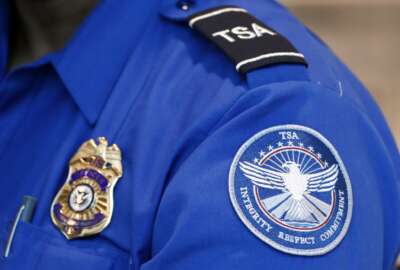Roadmap needed to change Defense travel rules
The troubled Defense Travel System may never be fixed unless there are drastic changes in the rules themselves about DOD travel. DTS director Pam Mitchell expla...
wfedstaff | June 3, 2015 1:17 am
By Suzanne Kubota
Senior Internet Editor
FederalNewsRadio.com
The Defense Travel Service “is one of the most successful, major, government automated systems” far exceeding everything expected of it in the beginning, according to testimony heard this week by the House Armed Services Oversight and Investigations Subcommittee.
Defense Travel Management Office director, Pam Mitchell, told Federal News Radio, DTS “does everything that it was originally intended to do. At the outset it was intended to be a routine business travel system. And it does that very well.”
In fact, some would argue, a little too well. Since 2006 and through the first quarter of the current fiscal year, DTS usage has grown by 263.8 percent.
“We have certainly the largest program in the federal government, if not in the country,” said Mitchell, “with 100,000 unique users logging into the system every day. And to give you another data point, we have about 1.3 million government travel charge card holders. So that gives you a little bit of an idea of how big the system really is.”
Policy covering the system is even bigger than the system itself. Mitchell pointed out that travel rules for most private sector companies usually run about 20 to 25 pages. For the government of Canada, it’s about 150 pages. At the Department of Defense, there are a thousand pages of policy, said Mitchell “embedded in two thousand pages of regulatory guidance.”
So now, she says, “our main effort, if you will, in my organization, to focus on simplifying the rule sets of policy, the processes, behind the system.”
The office is looking at all of the 76 trip types they handle, and with re-grouping, Mitchell said “we think we can get those down to about ten.”
We are… in the step of analysis. We are, in fact, right now, taking our two volumes of regulations, which again number some 2,000 pages – the Joint Federal Travel Regulations which apply to military and the Joint Travel Regulations which apply to civilians – and we are, in fact, working to consolidate those, which is a huge task in and of itself. But just that effort is going to make it a little easier for our folks to go to one place to find out what they have to do. Again, the analysis is ongoing and we are also working internally on proposed legislative changes which we will then take to the Hill to ask their support in also streamlining the statutes that govern travel.
Copyright © 2024 Federal News Network. All rights reserved. This website is not intended for users located within the European Economic Area.





